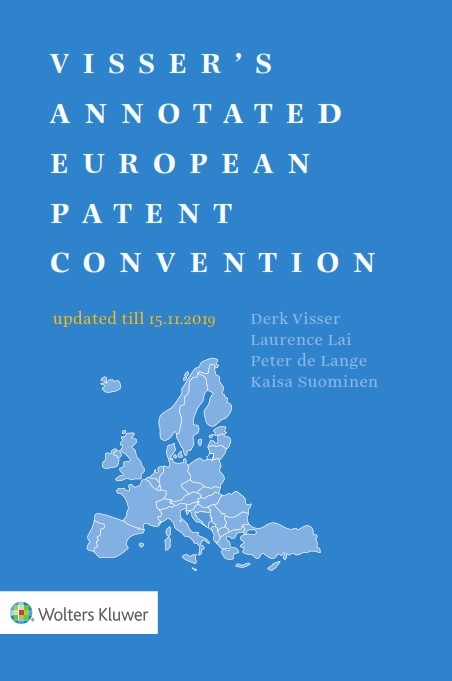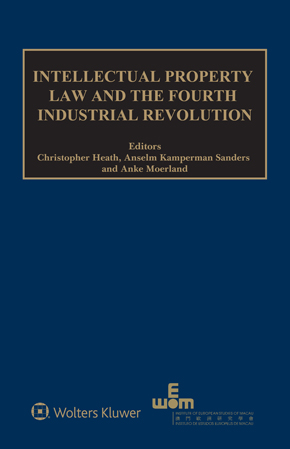While it is my impression that the IP profession, on the whole, has not had to suffer much under the current COVID-19 pandemic, the same is unfortunately not true for our patent attorney trainees. It all started in early 2020. By then about 1800 trainees had been busy for months learning and getting ready for the European Qualifying Examination, only to be informed – only a few weeks ahead of the exam – that the EQE 2020 has been cancelled due to COVID-19.
Going forward, German trainees entering their Amtsjahr (the year they have to spend at the German Patent and Trademark Office and Federal Patent Court) were confronted with the double intricacies of remote learning and completely insufficient digital infrastructure on the side of their instructors. This culminated in them being told that they had to acquire a Webex license at their own expense; otherwise the Federal Patent Court would be unable to hold online lectures. And while you may be still scratching your head about whether it is a trainee’s duty to buy a Webex license for his or her employer (trainees are formally employed at the GPTO during this time period and are obliged to attend the lectures, although they do not receive a salary – another unique oddity in Germany), you better go and collect the money. It’s only 180 EUR for a moderately sized group of about 40-50. So the trainees obliged, collected and paid the license fee, and the online lessons started. Well, at least 3 or 4 of them. Then some worryguts at the Federal Patent Court discovered that Webex operates through two web servers, one in Frankfurt and one in London. The latter, however, might possibly not be in conformity with the infamous EU General Data Protection Regulation, since it is not (no longer) located in the EU. Again, no time to scratch your head about whether this is correct on the law and, if so, whether it means that no EU citizen is allowed any longer to hold their online TCs or lectures via Webex (comments welcome, I am not a GDPR expert). In any case, online lectures via Webex were ceased; instead a purely German application was used. I prefer to cover the comments I heard about the *quality* of this application with a gracious cloak of silence.
But the worst was still to come. Once the German trainees had overcome all of these obstacles, organized themselves and studied for months for their German Patent Attorney exams, they were just now informed by a dry notification on the GPTO’s website that
In view of the ongoing COVID 19 pandemic and current developments, the German Patent and Trade Mark Office (DPMA) has decided that the patent attorney examination I/2021 will not take place on the dates previously scheduled in February 2021 (written part) and April 2021 (oral part). A make-up date has not yet been fixed.
Whow. To my mind, this raises a couple of serious questions and one personal comment. My questions are these:
Firstly, why exactly is a written exam for about 50 participants not possible even under the current circumstances? I note that the written state exams for certainly more than 1000 attorneys at law during the same time period are still on schedule. And I would guess that the GPTO should easily have more than 50 empty single office rooms in these days…
Secondly, even if holding a written exam as usual were not possible in COVID-19 times, why has apparently nobody spent a thought on holding such an exam digitally? Don’t tell me that a Patent Office is incapable of doing this – the EPO has managed to build up the necessary digital infrastructure to hold the 2021 EQE via a remote server, and the UK Patent Attorney exams have already been held via remote connection in 2020. I cannot imagine that these patent offices would not have cooperated and assisted the GPTO, had they been asked.
Thirdly, even if holding both a written exam in person and a written exam via remote connection were indeed impossible or incommensurate due to the present exceptional circumstances, why is it not possible to dispense the trainees from a written exam altogether and/or just hold an oral exam by videoconference (perhaps over 2 days rather than one as before?). The trainees are graded numerous times throughout their professional training, both by their firms, by Fernuniversität Hagen and not the least by many written exams they have to write during their Amtsjahr and the test votes they are preparing for the FPC. Thus, the GPTO should already have an excellent score of the progress and legal knowledge of each trainee anyway, which raises the question whether a written exam is really necessary in circumstances where the GPTO seems to be unable to carry it out. I am of course aware that there is a Patentanwalts-Ausbildungs- und Prüfungsverordnung (PatAnwAPrV) issued by the German Ministry of Justice and Consumer Protection (BMJV) which the GPTO has to observe and which prescribes a written exam. However, I wonder whether anyone has ever thought of asking the ministry whether the PatAnwAPrV could perhaps be modified taking the present extraordinary circumstances into due account? The BMJV has done a great job in drafting a very voluminous and complex set of emergency laws and rules for a pandemic situation within only a couple of weeks in February/March 2020. With this in mind I don’t think they would have found it overly difficult to adapt one or two sections in the PatAnwAPrV so as to do justice to these trainees, taking due account of the GPTO’s apparent difficulties to hold these written exams in Corona times.
Overall, and this is my (personal) comment on the above, the GPTO has really not covered itself in glory by cancelling these exams without even indicating a new date. Just put yourselves in the shoes of a trainee who is confronted with such a message about one month before their final exams for which they have been preparing themselves for months. This is not funny.
More from our authors:

|
Vissers Annotated European Patent Convention by Derk Visser, Laurence Lai, Peter de Lange, Kaisa Suominen € 105 |

|
Handbook of Blockchain Law: A Guide to Understanding and Resolving the Legal Challenges of Blockchain Technology by Matthias Artzt, Thomas Richter € 181 |

|
Patent Protection for Second Medical Uses, Second Edition by Jochen Bühling € 218 |

|
Intellectual Property Law and the Fourth Industrial Revolution by Christopher Heath € 135 |